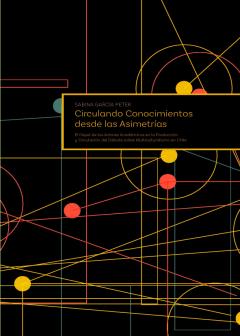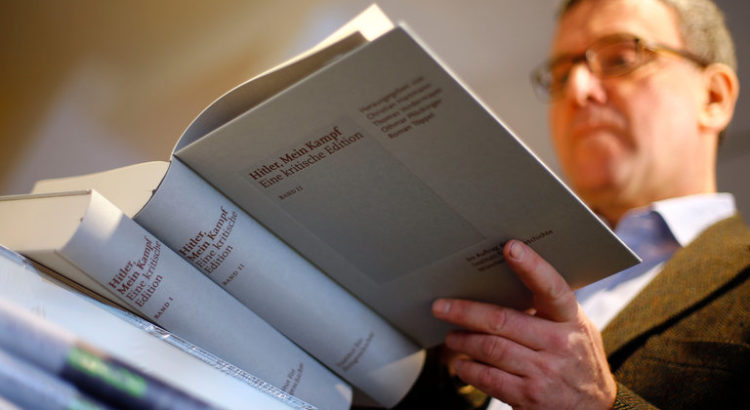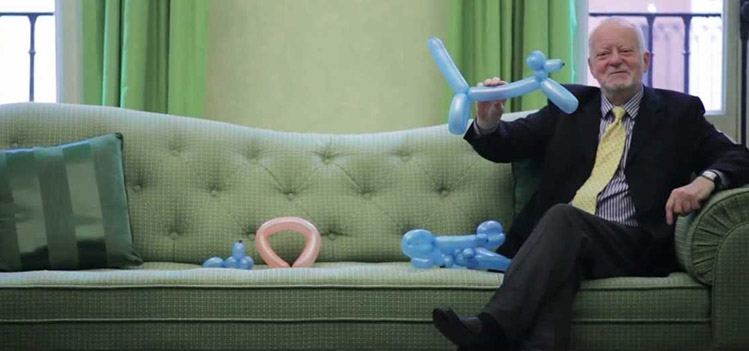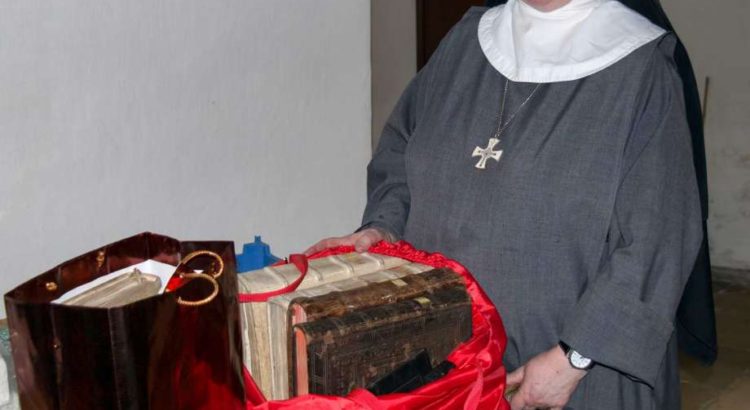Alemania/Diciembre de 2016/Fuente: Mysa
RESUMEN: Estaba sucia, agobiada y en gran desorden, pero cuando la historiadora del arte Eva Lindqvist Sandgren entró en la biblioteca de la Abadía de Altomuenster, fuera de las monjas del monasterio alemán durante más de cinco siglos, inmediatamente supo que estaba mirando un tesoro importante . Los polvorientos estantes llevaban al menos 500 libros, según su estimación, incluidos los preciosos manuscritos iluminados del siglo XVI, cantos utilizados por la Orden de Bridgettine dirigida exclusivamente por mujeres y procesionales repletos de coloridos ornamentos religiosos y ornamentales en sus márgenes. A diferencia de la mayoría de las bibliotecas de Bridgettine, los tomos habían sobrevivido a la Reforma Protestante, la Guerra de los 30 Años y la «secularización» alemana, cuando el estado tomó la mayoría de las propiedades de la iglesia. Representa la colección más completa de la orden conocida hoy.
It was filthy, cramped and in major disarray, but when art historian Eva Lindqvist Sandgren entered the library in Altomuenster Abbey, off-limits to all but the German monastery’s nuns for more than five centuries, she immediately knew she was looking at a major treasure.
The dusty shelves held at least 500 books, by her estimate, including precious illuminated manuscripts from the 16th century, chants used by the uniquely women-led Bridgettine Order and processionals bursting with colorful religious and ornamental decoration in their margins.
Unlike most Bridgettine libraries, the tomes had survived the Protestant Reformation, the 30 Years War and Germany’s «secularization,» when the state took most church property. It represents the most complete collection of the order known today.
«I had entered a time capsule,» said Lindqvist Sandgren, a senior lecturer at Sweden’s Uppsala University.
Surprised by the spontaneous decision by Altomuenster’s last remaining nun, Sister Apollonia Buchinger, to open the library, 20 scholars including Sandgren made plans to return and meticulously catalog the remarkable collection. But before they could, the Vatican ordered the abbey in the Bavarian town of 7,500 closed and locked up the library, which also contains some 2,300 statues, paintings and other works of art.
If plans go ahead to close it down, all of the abbey’s property — the books, the artworks, the city block-sized abbey, and the acres of forests and fields that make up the monastery grounds would be turned over to the dioceses of Munich and Freising.
Altomuenster is the end of a subway line from Munich, one of Germany’s most expensive cities, and its land alone is thought to be worth tens of millions of euros (dollars) — assets that Sister Apollonia thinks the dioceses are eager to get their hands on.
Since 1496, the former Benedictine abbey in Altomuenster has housed a female religious order founded by Saint Bridget in Sweden in the 14th century. It is one of three monasteries of the original branch of the scholarly, monastic order operating today. But with its numbers in decline, Sister Apollonia now lives there alone. The Vatican requires at least three nuns to train novices to become nuns, prompting the decision to shut the abbey down.
The Franciscan nun the Vatican put in charge of the closure, Sister Gabriele Konrad, says the collections are just being kept safe, but she’s refused to grant the scholars or anyone else access to the books.
«The value of the library is the ensemble, because it’s never been taken apart and probably nobody’s removed a significant number of books — it’s a working library,» said Corine Schlief, an art historian at Arizona State University who visited the library with Sandgren. «If this should be taken apart and divided up between books that collectors would give tens or hundreds of thousands of dollars for and those only of interest to scholars, it would lose a lot of its value.»
Schlief, Sandgren and other academics have written an open letter to the Vatican, Sister Gabriele and the Munich dioceses — which will inherit Altomuenster’s property once it’s closed — urging that the library be kept together and made available to the public and offering to catalog it.
Volker Schier of Arizona State University, another expert, estimated the Altomuenster collection represents around 80 percent of all known Bridgettine books.
Sister Gabriele and the Munich dioceses insist there is no plan to sell the books, and that their experts are perfectly qualified to handle them.
Scholars had known previously there was a library and had been able to ask nuns to bring them specific books to study in common areas of the monastery. But in October 2015, with such a large group of Bridgettine academics visiting, Sister Apollonia decided it made more sense for them to just look for themselves.
After the Vatican, a month later, ordered the monastery closed and Sister Apollonia appealed for more time, the 62-year-old nun with rosy cheeks appealed to the public for support, starting a blog, a Facebook page and a Twitter account to generate interest. She also gave The Associated Press unprecedented access to areas in the labyrinthine monastery previously restricted to nuns.
Sister Apollonia is convinced that, with help from other Bridgettine Orders to bolster her numbers, she can again start training her own novices. She currently has one postulant, a 38-year-old who left a law career last year, but she cannot advance to become a novice without more nuns to train her.
«They say there are too few, but there are some other women who want to join,» Sister Apollonia said, expressing hope that perhaps the Vatican might be reconsidering the order to shut down.
The Vatican office in charge has refused to comment on its plans.
Sister Gabriele says the decline of Altomuenster has been going on for decades and previous attempts to bring in others had failed. Two Bridgettines from Mexico came in 2012, only to return home after two weeks because they were homesick.
Munich-Freising Vicar General Msgr. Peter Beer, Cardinal Reinhard Marx’s deputy in charge of administration, dismissed speculation of any land-and-treasures grab by the dioceses. He said for cultural, social and religious reasons it was the dioceses’ responsibility to preserve monasteries when they close.
«There’s a false impression that we’re taking in riches and gems and gold and everything imaginable — that’s nonsense,» he told the AP at his office in Munich. «We are taking on costs more than anything.»
His office also downplayed the library’s potential value or historical significance, telling the AP it includes «a large number of antiphonaries from the 18th century, most in very used and some in damaged condition,» and that six antiphonaries — books containing religious chants — from the Middle Ages have «already been studied by scholars.»
That’s made the group of scholars who wrote the open letter and others even more suspicious. From the hundreds of photographs they took, they know there’s much more — including an illuminated manuscript from the 1500s in Belgium, which might be expected to fetch 100,000 euros ($105,000) or more if sold to a private collector, said Schier.
Schier noted that even financially insignificant books are historically important. Ledgers, cookbooks and even antiphonaries help tell how the nuns lived over the centuries.
«Altomuenster is the holy grail,» he said.
Beer bristled at the offer of help from the group of scholars.
«You can be assured that we do not need any help from the U.S.A. to understand how to treat cultural assets of significance for Europe. We have a slightly longer history and slightly longer experience,» Beer said.
Referring to the letter from American and European academics, he added, «It’s a little irritating to have things thrown out in public in an open letter without the facts.»
The dioceses plan to digitize all books dating from before 1803 and make them available online for researchers — but Schlief says that’s not enough.
«Digitization is laudable, but it never replaces the books themselves, which now need to be carefully studied and catalogued,» she said.
For her part, Sister Apollonia said if the Vatican decides to give her more time in the monastery, she’d be more than happy to open the library to the scholars again.
«They need to be made available to the public,» Sister Apollonia said. «Maybe we could charge a fee and it could be a source of income.»
Fuente: http://www.mysanantonio.com/news/education/article/Scholars-fret-about-fate-of-holy-grail-German-10818963.php

















 Users Today : 35
Users Today : 35 Total Users : 35460298
Total Users : 35460298 Views Today : 49
Views Today : 49 Total views : 3419017
Total views : 3419017